Our Experts
Smithsonian Student Travel | Experts
Our experts work in museums, conduct experiments, collect data, define the cutting edge of space exploration, and organize community gardens. They are curators, educators, researchers, conservationists, sociologists, and historians. Read on to meet a few of them!
Smithsonian Student Travel | Meet Our Experts

Dr. Neeti Bathala
Ecologist
Dr. Neeti Bathala is an accomplished academic and educator, specializing in ecology and environmental science instruction, field-based curricula, and study abroad programs in higher education. Trained as an ecologist, she has contributed to numerous conservation projects both locally and globally. Dr. Bathala holds degrees from Rutgers University (B.S.), Temple University (M.A.), Duke University (M.E.M.), and the University of Georgia (Ph.D.). She has also participated in National Science Foundation (NSF) post-doctoral Chautauqua Field programs, where she studied biodiversity and marine ecosystems in Belize, Hawaii, and the Galápagos Islands. With nearly 20 years of experience in higher education, she teaches both undergraduate and adult learners. Dr. Bathala currently teaches in the Department of Biodiversity, Earth, and Environmental Sciences at Drexel University, while continuing her role as an instructor at the Osher Lifelong Learning Institute (OLLI) at Duke University. In 2024, she was awarded a three-year Fulbright Specialist fellowship to serve as an international consultant in Environmental Science, focusing on how community partnerships contribute to marine conservation in small island nations.
During her graduate studies at Duke University, Dr. Bathala studied conservation biology in Costa Rica with the Organization for Tropical Studies (OTS). She has spent extensive time at biological research stations in Costa Rica and has volunteered with sea turtle conservation initiatives at Tortuguero National Park. Dr. Bathala has taught several marine ecology courses in the U.S. and led a study abroad program at the Roatan Institute for Marine Sciences (RIMS) in Honduras. She is a certified PADI SCUBA diver and has completed both day and nighttime dives in the Caribbean and Pacific Oceans. Dr. Bathala is passionate about making scientific exploration accessible and engaging for all. As an author, speaker, and educator, she actively promotes public education on environmental issues and is deeply committed to fostering STEM engagement, especially for women in the sciences. She serves on the Board of Advisors of the Sarah P. Duke Gardens at Duke University and mentors students in Duke’s Nicholas School of the Environment graduate program.
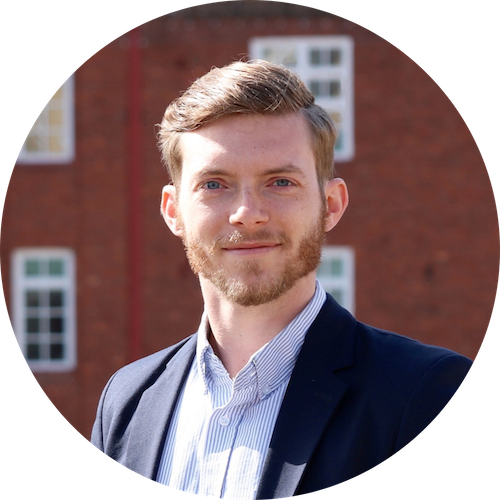
Edward Becker
Architect & Professor
Edward Becker is an Associate Professor of Architecture at Virginia Tech, consistently ranked as one of the top undergraduate architecture programs in the United States. He holds a Master of Architecture with Distinction from Harvard University, and a Bachelor of Architecture from Cal Poly – San Luis Obispo. As a member of the Finnish Association of Architects, he is the founder of Helsinki-based Vor, a sustainability-focused design and consulting practice. His award-winning, bio-focused design and research work is positioned at the intersection of architecture, landscape urbanism, and public art. Edward has lived and practiced in Copenhagen and Helsinki, among other global locations, and through those experiences has a deeply rooted professional ethic for, and expertise in, sustainable design, livable cities, and design for well-being. Winner of national and international design awards from the American Society of Landscape Architects, Architizer, Architects Newspaper, Association of Collegiate Schools of Architecture, and others, his collaborative work has been published internationally by Actar, ARK, Archinect, ARQ-XP, Phaidon, Routledge, Wood Design Magazine, and World Landscape Architecture, among others, including being featured in AN’s “Best of the Best” design awards publication and Phaidon’s “Architizer: World’s Best Architecture 2020.”
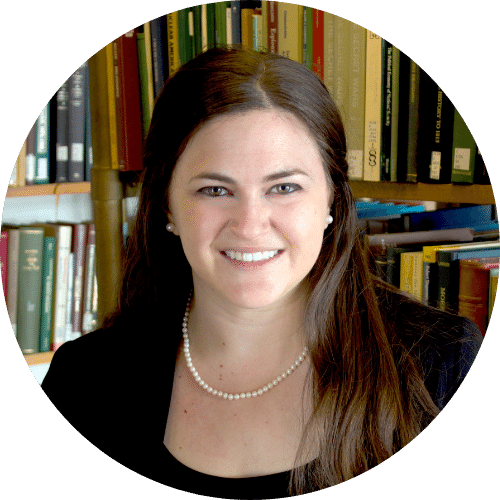
Liana Brent
Assistant Professor of Classical and Medieval Studies
Liana Brent is an Assistant Professor of Classical and Medieval Studies at Bates College in Maine. She holds a Ph.D. in Classics from Cornell University, and she is a Roman archaeologist who specializes in histories of the non-elite in the Roman world. Her research interests include Roman burial practices, Latin inscriptions, Greek and Roman sculpture, and the history of collecting antiquities. At Bates, she teaches courses on Roman Civilization, Archaeology, Slavery, Death and Burial, as well as Latin. In addition to her scholarly interests, Liana loves hiking, and in 2019 she walked the Via Appia Antica (an ancient Roman road), for 350 miles from Brindisi in southern Italy all the way back to Rome!
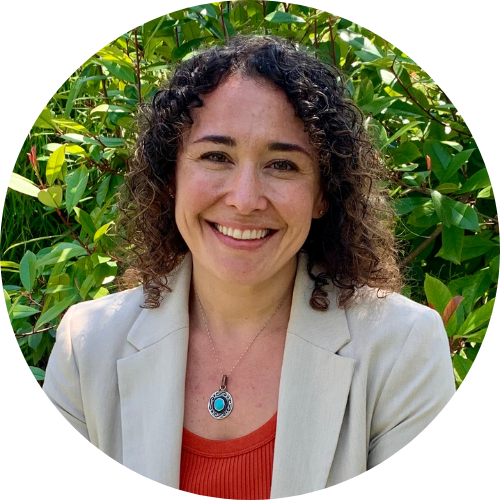
Kelley Cordova
Assistant Professor of French
Kelley Cordova is currently Visiting Assistant Professor in French at Washington and Lee University. She teaches language courses and seminars in French and Francophone literature and culture. In 2023 Kelley received the University of Virginia’s All University Graduate Teaching Award, and before resuming her doctoral studies, she taught French in private and public secondary schools in Virginia for seven years. In addition to her pedagogical practice on campus, Kelley is an advocate for study abroad and has worked with the University of Virginia’s summer in Lyon program since 2019. In addition to teaching her seminar, “Tissu urbain: Cityscapes and Storytelling in Lyon,” this coming summer Kelley will transition to the role of Program Director. Kelley’s past experiences with study abroad initiatives also include scholastic and internship programs for university and secondary students in Paris, Nice, and Fréjus, France.
Her scholarship focuses on contemporary French literature and culture, specifically research texts at the crossroads of literature and the social sciences that demonstrate a striking interest in marginalized histories, populations, and milieux. Kelley’s dissertation, “Une littérature compliquée”: (Re)Writing the Margin in Contemporary France,” was funded by the University of Virginia’s College of Arts and Sciences and the Dartmouth Institute of French Cultural Studies. In 2023, Kelley was awarded the Fulbright Postdoctoral Fellowship with the École des Hautes Études en Sciences Sociales, which provided funding for her two current research projects.
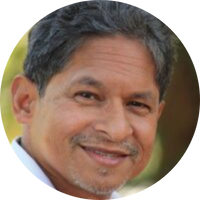
Raja GuhaThakurta
Professor of Astronomy & Astrophysics
Raja GuhaThakurta is a Distinguished Professor of Astronomy and Astrophysics at the University of California Santa Cruz. He studies the formation and evolution of galaxies large and small, with a focus on the assembly of their dark matter, dynamics of their resolved stellar population, merger history, chemical enrichment, and star formation history. He makes extensive use of the Hubble Space Telescope and Keck telescopes in his research, and has over 800 publications. He is the founder and faculty director of the Science Internship Program (SIP), in which high school students are mentored by UCSC researchers and work on cutting-edge STEAM research projects. He also founded two other educational initiatives: Shadow the Scientists (StS), which allows students and educators to eavesdrop via Zoom on scientists while they conduct research; and PyaR (Python and Research), an online computer programming tutorial set in the context of astronomy research. These programs are under the CrEST (Creating Equity in STEAM) umbrella that he started at UCSC. Raja has been appointed a Distinguished Visiting Professor at Tsinghua University in Beijing, China from 2022–2025, American Astronomical Society Fellow in 2021, Outstanding Faculty in UCSC’s Physical and Biological Sciences Division in 2020–2021, Raymond and Beverly Sackler Distinguished Lecturer at Tel-Aviv University in 2018, and visiting faculty at Google in 2015. He was awarded the National Research Council of Canada’s Herzberg Memorial Prize and Fellowship in 2001, and an Alfred P. Sloan Fellowship in 1997. He received his Ph.D. in Astrophysical Sciences from Princeton.
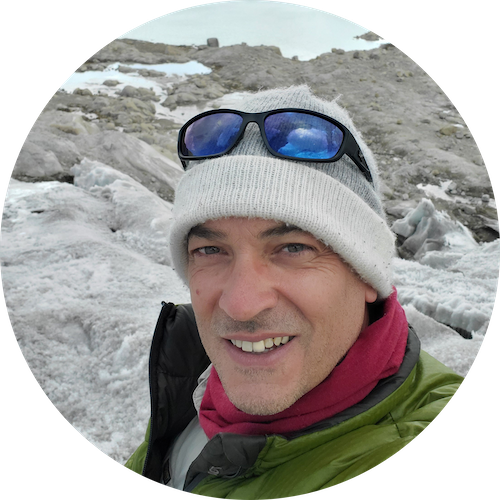
Dan Dixon
Sustainability Director
Dan is the University of Maine Sustainability Director and a Research Assistant Professor with the University’s Climate Change Institute. He initially trained as a marine engineer and ultimately received his Bachelor of Science in Geology and Oceanography from the University of Southampton, UK. For his undergraduate research, he studied the clay mineralogy of mud volcanoes and diapirs along the Iberian continental margin using x-ray diffraction techniques. Since then, he earned his MSc in Quaternary and Climate Studies and his PhD in Earth Sciences while working at the University of Maine’s Climate Change Institute.
Dan’s graduate research was primarily focused on Antarctica. As a member of the United States International Trans-Antarctic Scientific Expedition team, he completed five Antarctic field seasons, traversing more than 10,000 km over the ice sheet and drilling more than 40 ice cores along the way. Dan continues to focus his research on reconstructing paleoclimate using the chemistry contained in snow and ice. He has also worked in Iceland, Southern Patagonia, the New Zealand Southern Alps, the Central Chilean Andes, the Olympic Mountains, the Saint Elias Mountains, the Island of South Georgia, and most-recently in the Peruvian Andes. Dan is a recipient of the United States Antarctic Program Polar Service Medal and has received a National Science Foundation Achievement Award for Traversing in Antarctica.
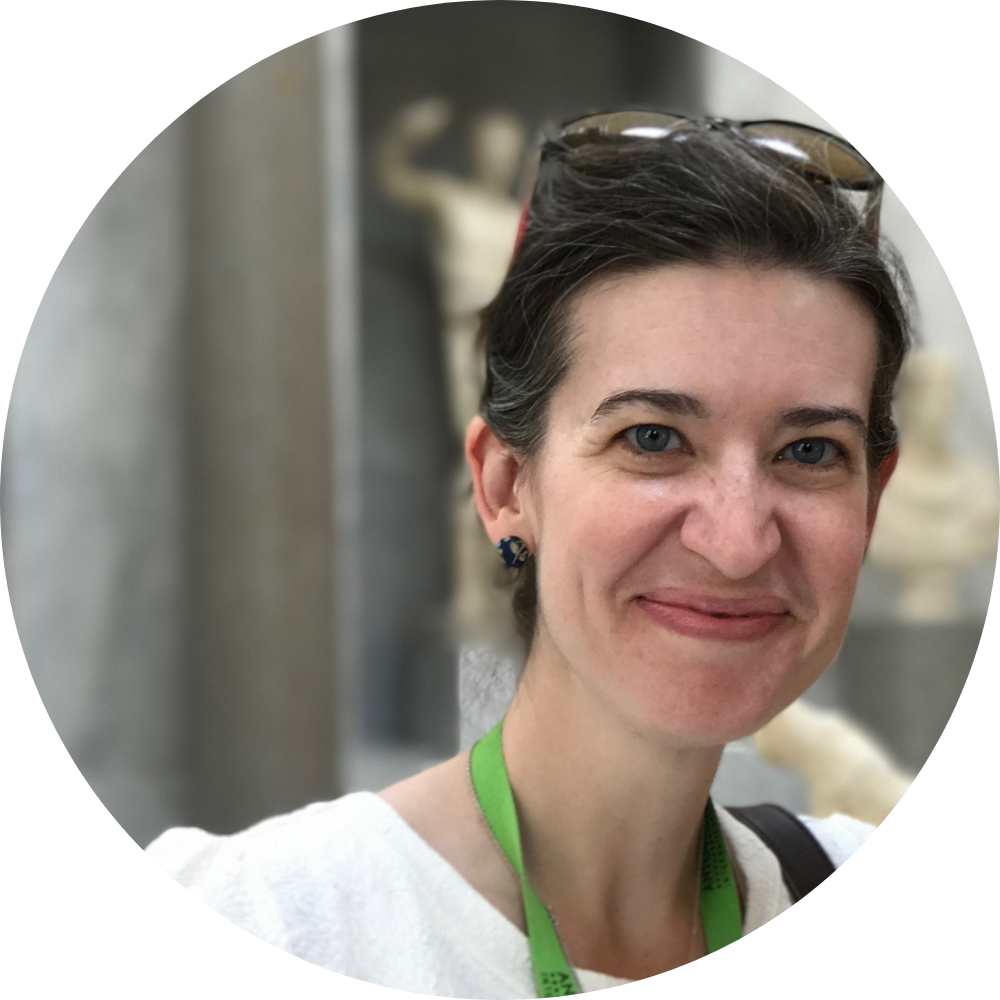
Ashley Elston
Art Historian
Ashley Elston is an art historian who specializes in late medieval and Renaissance art in Italy. She is Associate Professor of Art History and Director of Visual Arts at Berea College, where she teaches a variety of courses on European art from the ancient world to the 19th century. She discovered her love of Italian art and culture as an undergraduate working on a degree in history and medieval studies at St. Olaf College when she participated in a study abroad course in Rome. She went on to complete an M.A. and Ph.D. in art history at the University of Kansas. A Fulbright grant allowed her to live in Italy while conducting her doctoral research in churches, archives, and museums, and her work has also been supported by competitive grants from the Renaissance Society of America and the Southeastern College Art Conference. She is currently working on a book that examines how paintings and sculptures were used together on Italian Renaissance altars and recently co-edited a book titled Hybridity in Early Modern Art.
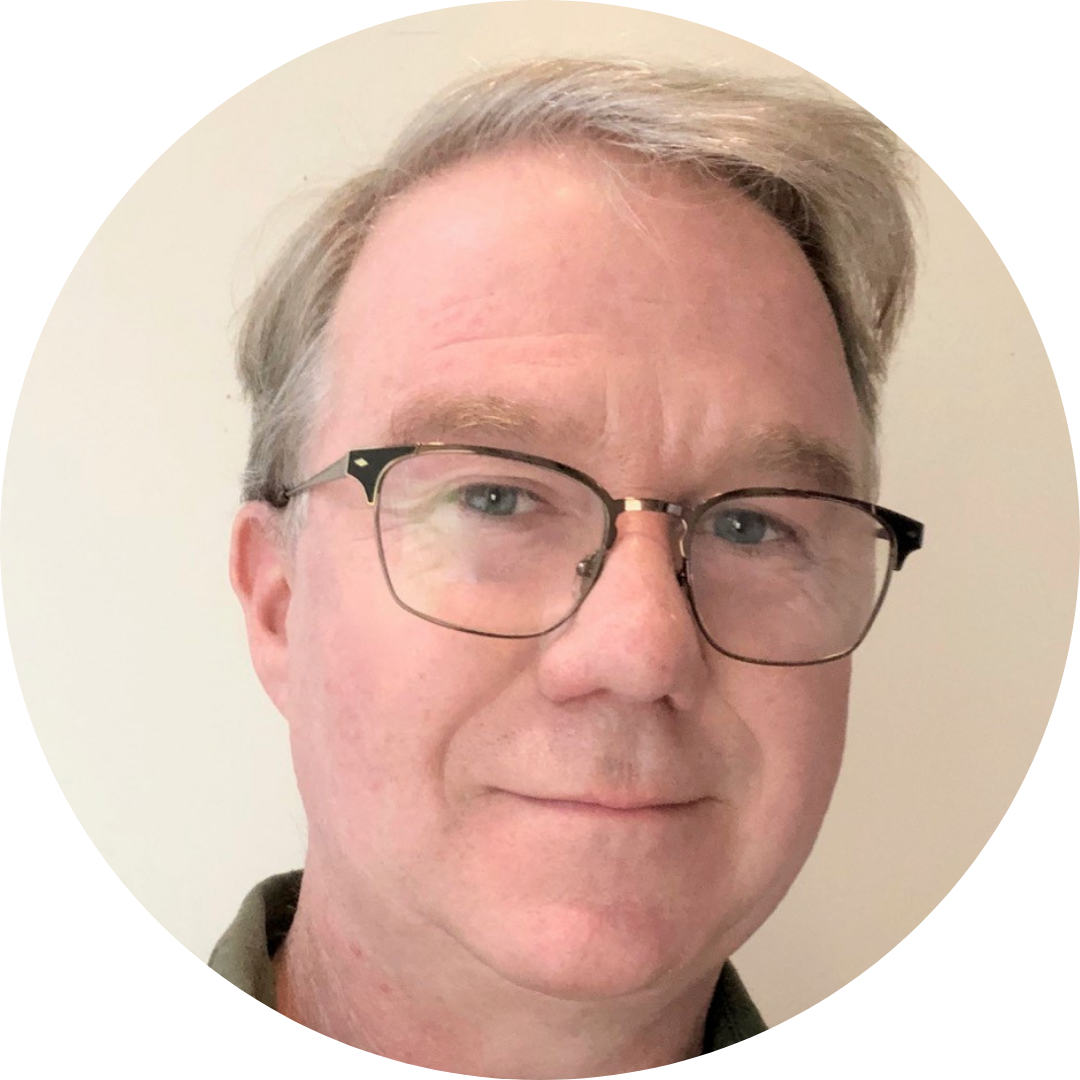
Paul Glenshaw
Filmmaker & Writer
Paul Glenshaw is an independent filmmaker, artist, and writer whose multidisciplinary work covers art, history, and aviation. He is co-director, writer, and producer of the World War I documentary The Lafayette Escadrille, distributed nationwide to PBS stations in 2021. His work for the Smithsonian Associates include his popular online series Art+History, Jazz in Paris, and other history lectures, as well as drawing instruction and history tours. He is a longtime contributing author and editor for Smithsonian’s Air & Space magazine, with expertise in the Wright brothers and pre-WWI aviation. Paul is the author of the theatrical concert To Swing Through the Sky, a commission by George Mason University that traces the twin histories of jazz and powered flight. His drawings made at the Folger Shakespeare Library were featured on their Shakespeare and Beyond blog. He is currently creating a series of drawings made from the remains of Civil War casualties at the National Museum of Health and Medicine. At the start of the 2020 pandemic, he co-created The Seven Tones Project, which paired musicians and filmmakers to create 40 short films based on the music of Duke Ellington. He began his career at the National Gallery of Art, selling postcards in the bookstore, and then printing exhibit labels.
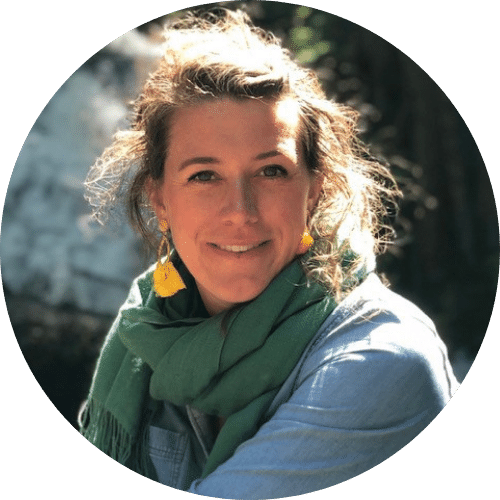
Kate Lakin-Schultz
French and Francophone Studies Lecturer
Dr. Kate Lakin-Schultz is a Master Lecturer and the Overall Coordinator of the French Language Program at Boston University. Dr. Lakin-Schultz holds a Ph.D. in French and Francophone Literature and Civilization from the University of Virginia and teaches at all levels of French language at BU as well as freshman writing courses. She specializes in Francophone African literature and culture and seeks to share the diversity of the Francophone world in her teaching, focusing primarily on the relationship between West Africa and France in her more advanced courses. She frequently presents on campus and at national conferences on best teaching practices, the effective use of teaching technologies, and integrating culture in the language classroom. Dr. Lakin-Schultz has spent several summers in Lyon with the University of Virginia study abroad program and looks forward to exploring the city again and sharing what she loves about it with students on the Smithsonian Student Travel program. The city has so much to offer historically, culturally, architecturally, and gastronomically and she always recommends prioritizing a stop in Lyon when traveling in France. One of her favorite things are its famous rivers, the Saône et the Rhône, that beautifully join at the southernmost point of the Lyon peninsula or “presqu’île.”

Guido Lombardi
Anthropologist & Doctor
A Peruvian-born doctor, anthropologist, explorer, and naturalist, Guido is currently an honorary visiting professor at the Universidad Peruana Cayetano Heredia in Lima. His award-winning graduate work focused on development of groundbreaking laboratory techniques demonstrating the existence of tuberculosis in mummy specimens from across the Americas. Author of numerous publications, he has conducted research and led many projects on paleocardiology, mummy studies, and autopsy techniques for decades. Guido speaks five languages, has visited 78 countries and territories, and discovered a new plant species in Cajamarca, Peru. In recent years, he has been leading a project to excavate and develop the archaeological site of the Petroglyphs of Huaycan, a significant archaeological complex outside of Lima. As a researcher, doctor, and active facilitator of community development and engagement in his home city of Huaycan, Guido’s work integrates prehispanic health practices and challenges with the social and medical realities of modern Peru. He is a corresponding member of the Colombian Society of History of Medicine, and serves as the Director of Research and Scientific Development of the Peruvian Health Heritage Board.
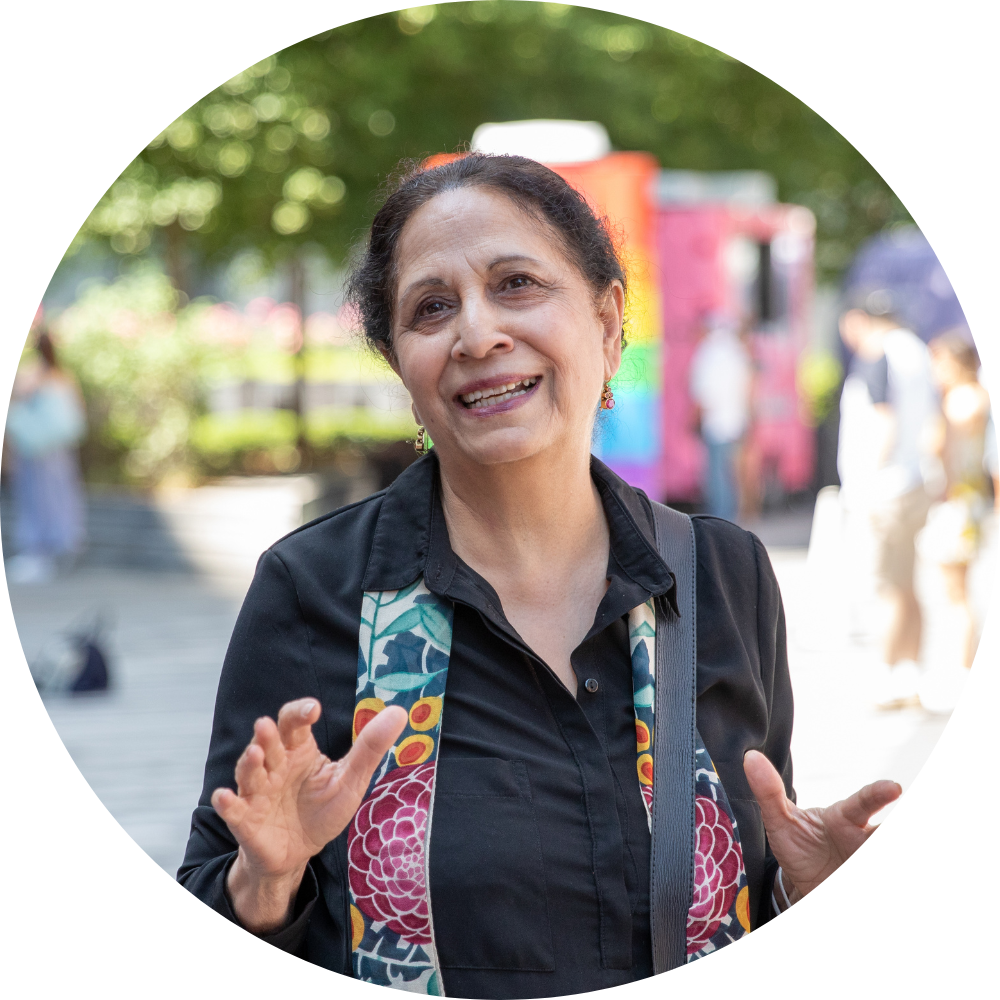
Geeta Mehta
Professor of Architecture and Urban Design
Geeta Mehta is an adjunct professor of architecture and urban design at Columbia University. She received her education from the School of Planning and Architecture in New Delhi and Columbia University, and earned her Ph.D. from the University of Tokyo. Her experience of working in India, China, Korea, and several countries in Europe, Africa, and South America enables her to bring a global perspective to her teaching. She has spoken on social capital, sustainable and equitable urbanism, and community-based change at forums around the world and she served as a panelist at WomenDeliver in Copenhagen, Denmark, and the Women’s Summit in Sharjah organized by UN Women. In 2018, she was appointed to serve on the Waterfront Management advisory board by New York City Mayor Bill de Blasio. Geeta also co-founded URBZ: User Generated Cities, a research collective that focuses on participatory urban planning and design systems, which was named one of the 100 most influential names in architecture in the world by the magazine Il Giornale dell’Architettura.

Chong Ntxoo Moua
Assistant Professor of Hmong Studies
Chong came to the U.S. in 1989 with her family as refugees of America’s secret war in Laos. They resettled in California where she grew up and later attended college as a Bruin at UCLA. She is currently an Assistant Professor at University of Wisconsin Oshkosh where she teaches Hmong Studies and History courses. Her expertise and community and curatorial work has contributed to various exhibits, and curricular and public history projects.
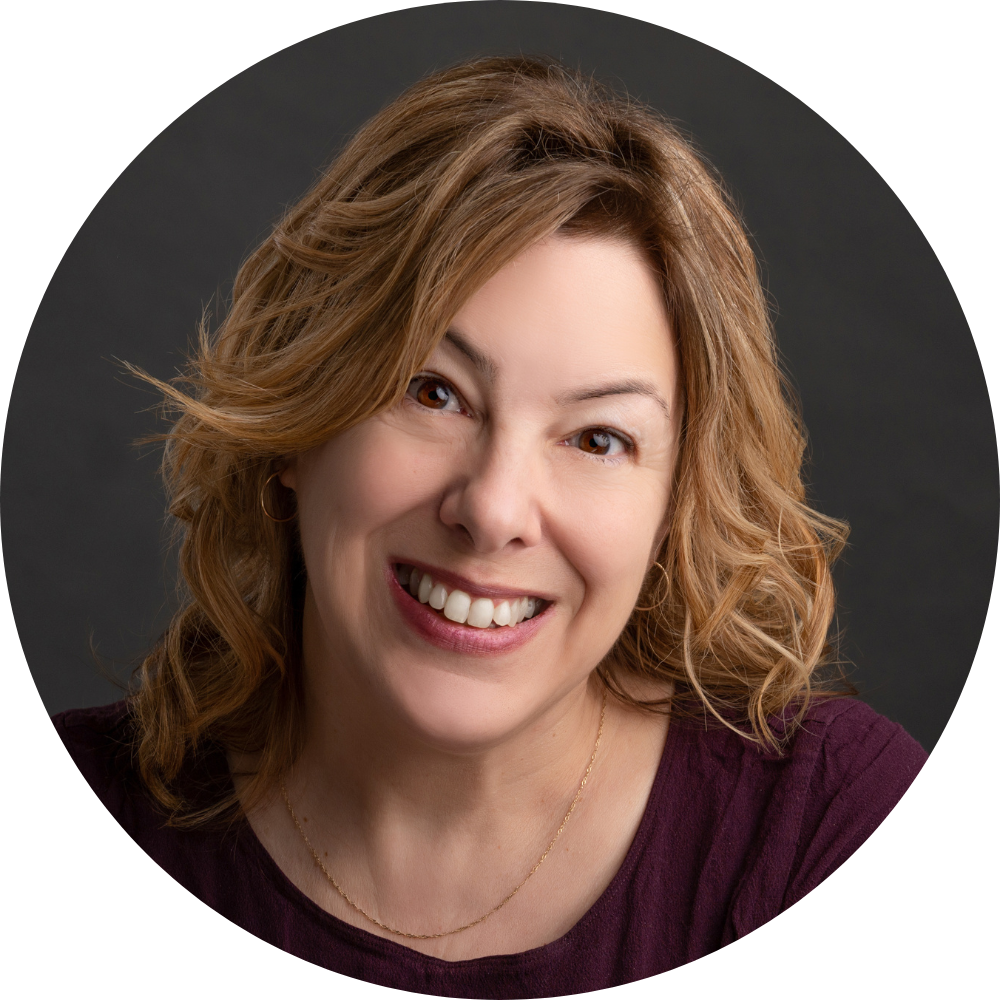
April Nowell
Archaeologist
Dr. April Nowell is a Paleolithic archaeologist and Professor of Anthropology at the University of Victoria, Canada, where she has taught classes on cave art for more than 20 years. She received her BA from McGill University and her PhD from the University of Pennsylvania. She directs an international team of researchers in the study of Lower and Middle Paleolithic sites in Jordan and collaborates with colleagues on the study of cave art in Australia and France and on ostrich eggshell beads in South Africa. Her work has been covered by more than 100 outlets including The Washington Post, The Guardian, The New York Times, CNN website, The Economist, CBC’s The National and As It Happens, NPR, and the Smithsonian Magazine website, and her work on blood residue on stone tools was named one of Time Magazine’s top 100 discoveries. Her most recent book is titled Growing Up in the Ice Age: Fossil and Archaeological Evidence of the Lived Lives of Plio-Pleistocene Children.
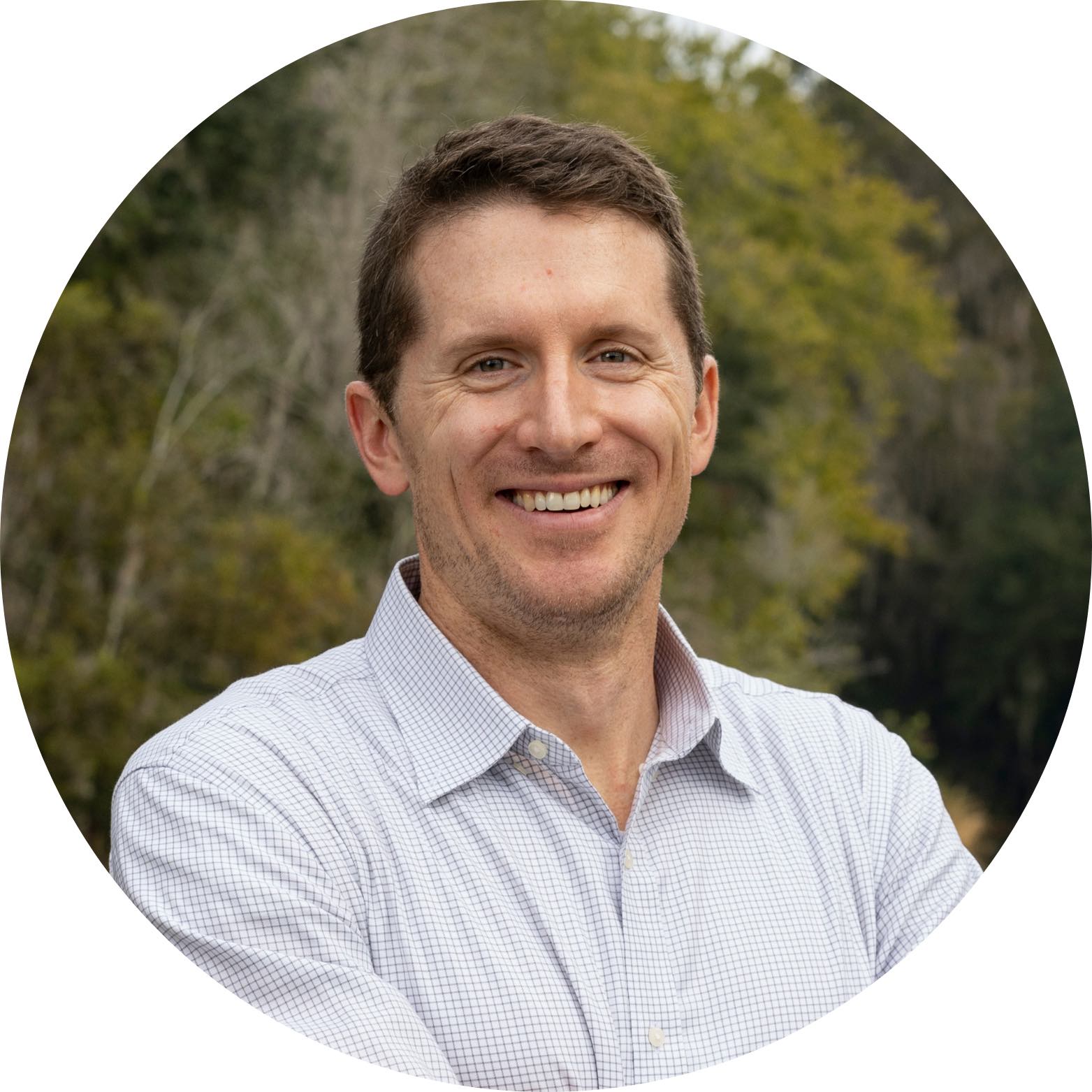
Dr. Brett Scheffers
Professor of Wildlife Ecology and Conservation
Dr. Brett Scheffers is an Associate Professor in the Department of Wildlife Ecology and Conservation at University of Florida. He currently serves as an Alfred P. Sloan Research Fellow. Dr. Scheffers is the Chair of the Species on the Move international seminar series and the co-founder of the SE Regional Invasive Species and Climate Change Management Network. He has been a National Geographic explorer since 2014 and a long-time member of the IUCN Climate Change and Biodiversity Specialist Group. Dr. Scheffers obtained his B.Sc. in Ecology at Sewanee: The University of the South, USA, his M.Sc. in Ecology from University of Alberta, Canada, and his Ph.D. in Ecology from National University of Singapore, Singapore. He served as a post-doctoral research fellow at James Cook University, Australia.
Dr. Scheffers runs a dynamic and leading biological conservation and ecology lab and has published over 80 peer-reviewed articles, many of which are in leading international journals such as Science, Nature Climate Change, Current Biology, and Frontiers in Ecology and Environment. His work has been covered by hundreds of news outlets, including The Economist, Huffington Post, National Geographic, Scientific American, and the New York Times. Dr. Scheffers has spent the last 20 years working in tropical ecology and conservation biology across the world’s tropical rainforests of Australia, Southeast Asia, Africa, and Central and South America. He has extensive experience in the field of global change biology and his research focuses on core ecological problems – often using canopy science, the degree of vertical habitat use in montane tropical rainforests, as his model system. His research also focuses on ecological responses and adaptation of a variety of taxa ranging from birds, amphibians, reptiles and insects to climate change and environmental instability.
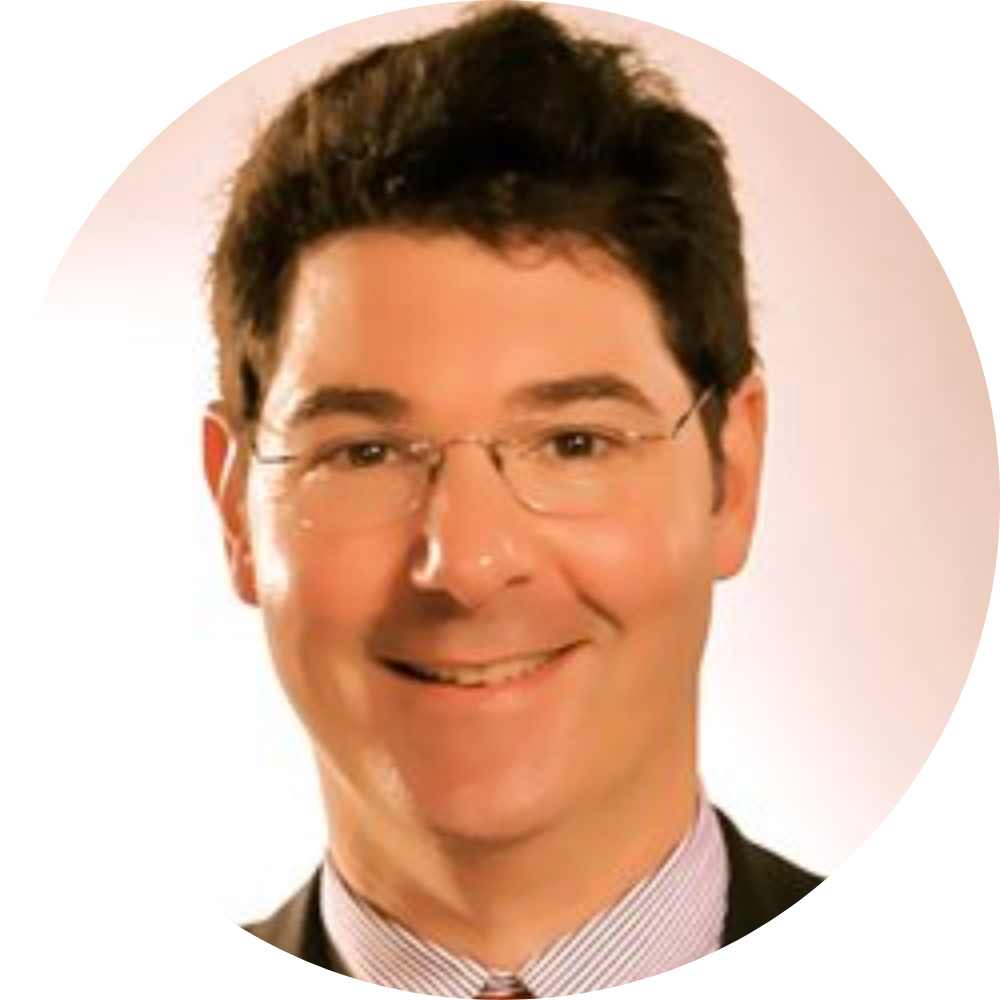
Hugh Shapiro
Professor of East Asian History
Hugh Shapiro is a professor of East Asian history at the University of Nevada, with a BA from Stanford University and a PhD from Harvard. As a Smithsonian Journeys Expert, he has lectured in 15 countries in Eurasia, and has traveled extensively throughout the region. Hugh has enjoyed visiting appointments at Princeton University, at universities in China, Japan, and Taiwan, and at the Institute for Advanced Study in Princeton. He received the Li-Qing Prize for the History of Chinese Science and won his university’s highest teaching award. His extensive archival and fieldwork focuses on the history of medicine, disease, and the body in comparative context. His recent work appears in volumes published by Harvard University Press, Brill, and Oxford University Press. Hugh’s other research and teaching interests include visual and performance art, Central Asia, and the history of de-colonization and authoritarianism.
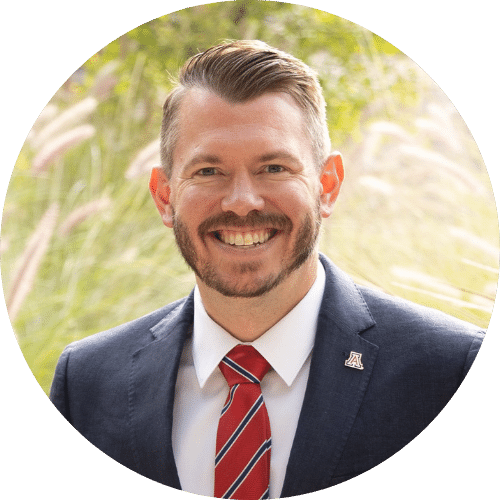
Dr. Robert Stephan
Associate Professor of Practice (Classics)
Dr. Rob Stephan is an archaeologist by training and has taught in the University of Arizona’s Department of Religious Studies and Classics since 2016. He hails from Cincinnati, OH and attended the University of Michigan, where he studied Classical Archaeology, Biological Anthropology, and Near Eastern Studies. Upon completing his B.A. in 2005, he left the Midwest to take his talents to Stanford University’s Ph.D. program in Classics. His thesis took an archaeological perspective to look at the impact of the Roman Empire on economic growth in the Mediterranean world, and he earned his Ph.D. in 2014. Rob’s research interests focus on how the material remains of the past can inform us about the economic performance of ancient societies. More recently, he’s also been researching the intersection of technology and teaching, exploring how we can use video games and virtual reality to give students a better understanding of the ancient world.
Rob has worked on archaeological excavations in Italy, Cyprus, Britain, Armenia, and the American Southwest. His current project, the Bays of East Attica Regional Survey (BEARS) uses archaeological data to investigate the bay of Porto Raphti in Greece from prehistory through the medieval period. In addition to supervising undergraduates on these archaeological projects, Rob has led study abroad programs in Italy, Greece, and the Holy Land. Rob teaches courses on classical history and civilization, classical mythology, Greco- Roman sport and spectacle, and ancient Egypt. In his free time, he likes hiking and eating nachos, although his Saturdays are still dedicated to watching the Michigan Wolverines, Stanford Cardinal, and Arizona Wildcats on the gridiron.
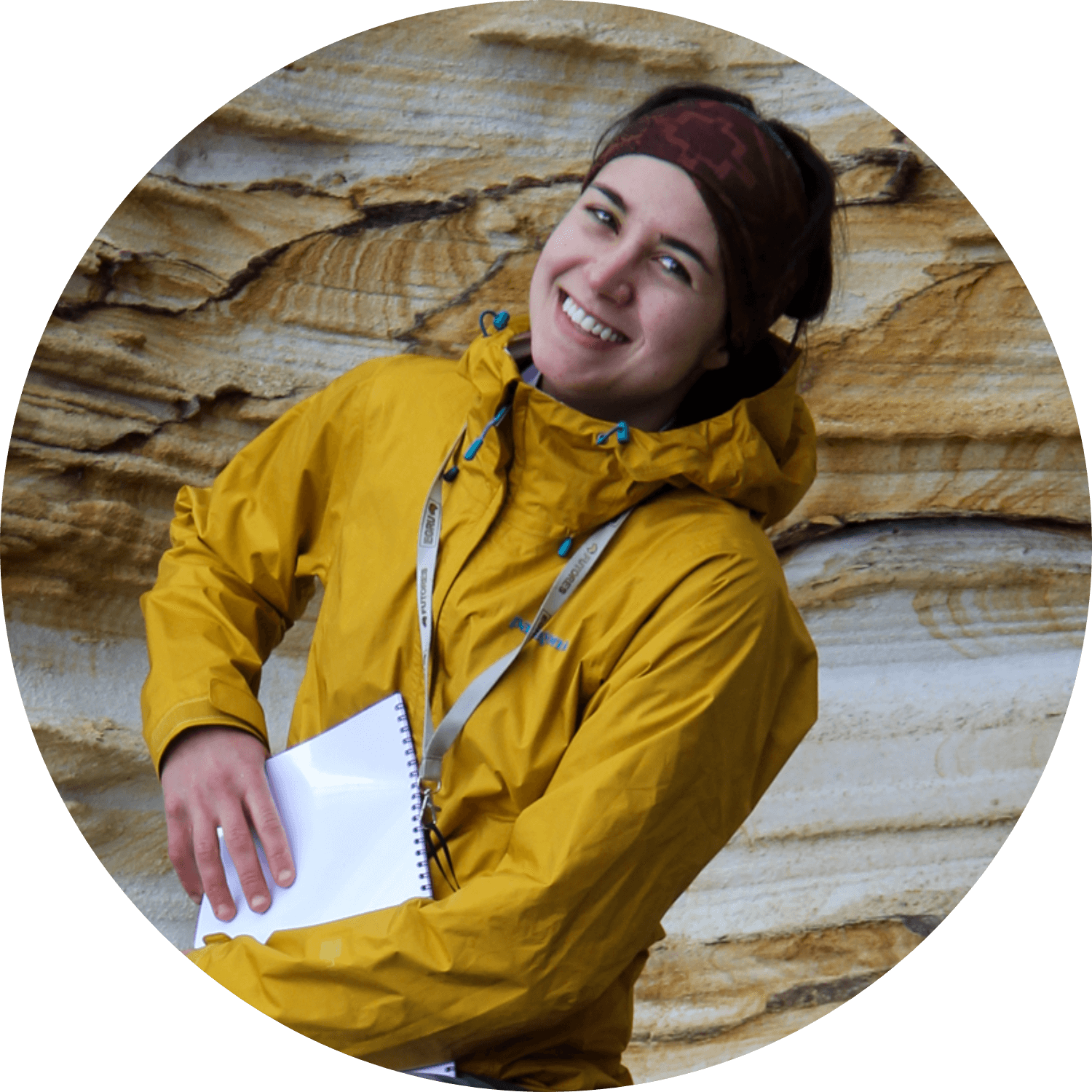
Dr. Stephanie Sykora
Geologist
Dr. Stephanie Sykora is a geologist, with a Ph.D. degree in Geology from the University of Tasmania, Australia, and a B.Sc. degree in Earth and Ocean Science from the University of Victoria, Canada. She has worked for over 10 years as an exploration geologist all around the world, including Australia, Papua New Guinea, Serbia, Ireland, Japan, Peru, Chile, Ecuador, Mexico, USA and Canada. She has worked with various mineral exploration companies, universities, and published scientific articles. Currently she is a consultant geologist based out of Canada. She had led and participated in various field trips globally, focusing on geology and natural sciences. Stephanie is also an avid scientific communicator for earth sciences, having been involved in outreach programs, such as Young Tassie Scientists, and written numerous online, publicly accessible articles about geological sites around the world.
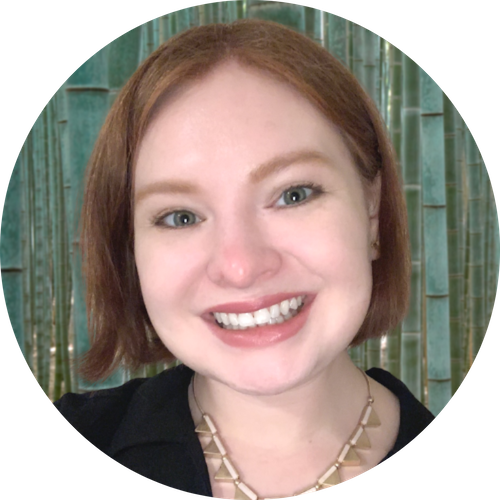
Kaitlyn Ugoretz
Assistant Professor & Associate Editor
Kaitlyn Ugoretz is an Assistant Professor and Associate Editor at the Nanzan Institute for Religion and Culture in Nagoya, Japan. Her experience studying and working abroad in China inspired her to spend her life learning and teaching about East Asia. She received her BA and MA from the University of Pennsylvania and is finishing her PhD at the University of California, Santa Barbara. As an expert on Japanese religion and culture, Kaitlyn has conducted fieldwork at shrines, temples, and other historical sites across Japan. Her research focuses on the global spread of the Japanese religion called Shinto through digital technology and popular media. She consults on games and television and writes for outlets including Religion News Service, The Washington Post, Critical Asian Studies, and The Conversation. She is a frequent podcast guest and the host of the award-winning educational YouTube channel “Eat Pray Anime,” which explores Japanese religious history and culture through comics, anime, and video games.
